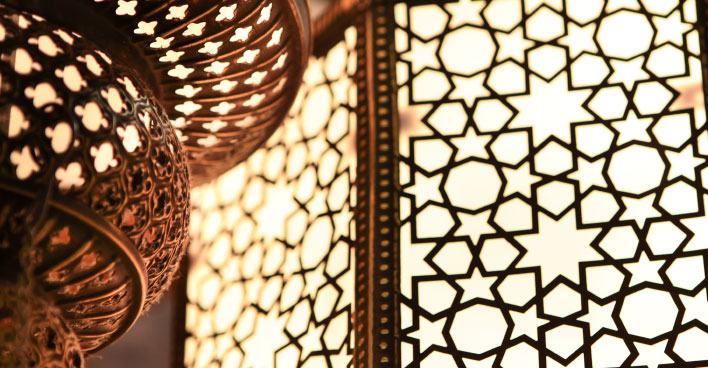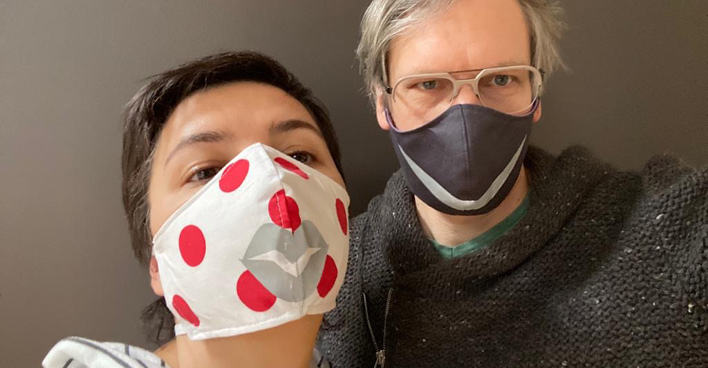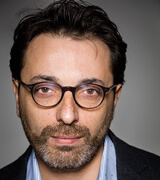
 UNESCO seeks nominations for the UNESCO-Sharjah Prize for Arab Culture
UNESCO seeks nominations for the UNESCO-Sharjah Prize for Arab Culture
UNESCO calls for candidatures for the UNESCO-Sharjah Prize for Arab Culture. Awarded since 2001, the Prize was established in 1998 in collaboration with the Government of Sharjah (United Arab Emirates) and is now at its 18th edition.
Extension of deadline for submissions of candidatures: 30 September 2021 at midnight (GMT +2).
ABOUT THE PRIZE
Established in 1998, the UNESCO-Sharjah Prize for Arab Culture rewards, each year, two laureates – individuals, groups or institutions – who, through their work and outstanding achievements, endeavour to disseminate greater knowledge of Arab art and culture.
Applicants to the UNESCO-Sharjah Prize for Arab culture must have contributed significantly towards the development, dissemination and the promotion of Arab culture in the world. The winners are chosen by the Director-General of UNESCO, on the recommendation of an international Jury of experts in the field of Arab Culture and having distinguished themselves, over several years, by meritorious actions. Thus, the winners contribute to the promotion of cultural dialogue and the revitalization of Arab culture.
Laureates are awarded the Prize (with an amount of US$60 000, divided equally between two laureates), in recognition of their contribution – in their respective disciplines – to Arab art and culture, or for participating in the dissemination of the latter outside the Arab world. Together, the prize winners have come to represent a new generation of researchers, artists, philosophers, authors and translators with a profound desire to achieve a genuine dialogue between Arab culture and other cultures.
In an era of globalization and profound political and social changes facing the world, this Prize fully meets the values of mutual understanding that is cited in the Constitution of the Organization. By rewarding careers, lives, whose efforts have been to promote a culture to which they own so much, the UNESCO-Sharjah Prize for Arab culture strives to foster a better understanding of other civilizations, thus promoting, or encouraging international exchange. Arab arts and culture have left traces all over the world, not only has the mosaic of cultures in the Arab region benefitted mutually but also cultures far beyond. One cannot find a better tread for cultivating peace.
- Statutes, also available in Arabic and French
- Brochure on the Prize
- Participate: join the database
Palestinian artist Suleiman Mansour and Brazilian historian Silvia Alice Antibas, laureates of the 2019 edition
The 2019 UNESCO-Sharjah Prize for Arab Culture has been awarded to Palestinian artist Suleiman Mansour and Silvia Alice Antibas, an historian and curator from Brazil in recognition of their commitment to the dissemination of Arab culture worldwide. More information
Interview with Azra Akšamija – “What matters most, at the time of crisis, are qualities of our human connections”
Dr Azra Akšamija (on the left in the picture), Jury member of the Prize, shares with us her personal experience of the current complex situation related to the COVID-19 pandemic. With the support of her community, she has started the global Co-MASK initiative to inspire people to create their own masks and, by doing so, to promote hope, humanity, solidarity and efficient hygiene practices. More information
MEMBERS OF THE JURY
|
Azra Akšamija is an artist and architectural historian, Director of the MIT Future Heritage Lab and an Associate Professor in the MIT Art, Culture and Technology Program. Her recent academic research focuses on the representation of Islam in the West, destruction and restoration of cultural heritage in the Balkans and the MENA region. |
|
Mohamed Ben Attia is a Tunisian film director and screenwriter. He directed several short films before he moved to feature film in 2016 with "Hedi, a wind of freedom". He won two prizes at the 2016 Berlinale. In 2018, he participated in the Cannes Film Festival with his film Dear Son. |
|
Salah M. Hassan, a Goldwin Smith Professor of African and African Diaspora Art History and Visual Culture in Africana Studies and Research Center, and Department of History of Art and Visual Studies, and Director of the Institute for Comparative Modernities (ICM), Cornell University. |
|
Renowned for work that is as poetic as it is political and biographical, Emily Jacir has built a complex and compelling oeuvre through a diverse range of media and methodologies that include unearthing historic material, performative gestures, and in-depth research. |
|
María Olga Samamé Barrera is an associate professor of Arabic literature, at the School of Philosophy and Humanities at the Universidad de Chile. She wrote extensively on issues pertaining to Arabic immigration, exile, and identity. She has specialized in the literature of immigrants and descendants of Arabs in Chile and the Americas. |
LAUREATES
2019 - Suleiman Mansour (Palestine) and Silvia Alice Antibas (Brazil)
2016 - Bahia Shehab (Egypt) and eL Seed (France)
2015 - Elias Sanbar (Lebanon) and Biblioteca Islámica (Spain)
2013 - The Arab Image Foundation (Lebanon) and Farouk Mardam-Bey (France)
2012 - Mustapha Cherif (Algeria) and the Arab British Centre (United Kingdom)
RESOURCES
Former editions: 15th / 14th / 13th / 12th / 11th / 10th / 9th / 8th
CONTACT
Shama Chokkam-Sunderraj
Focal Point
UNESCO-Sharjah Prize
History and Memory for Dialogue Section
Social and Human Sciences Sector - UNESCO
7 place de Fontenoy
75352 Paris 07 SP FRANCE
Tel.: + 33 1 45 68 09 66
E-mail: s.chokkam-sunderraj(at)unesco.org / prix.sharjah(at)unesco.org














